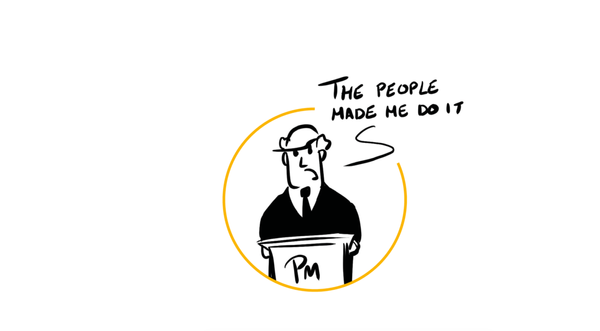Trump's cabinet is cleverer than you think
Alexander Luisi compares the language used by Trump's administration and the Party in Orwell's 1984

The language of the Trump administration fascinates me. The daily barrage of comments, tweets and press conferences reveals something quite fundamental about the way that the government is operating, and how it will operate. It’s hard to believe that the administration is not in utter chaos, and what is striking is the language used in the information presented, and the nature in which it is presented. It conveys a semblance of order and the impression that the President and his team are 'doing great’. Sound familiar? That’s because it is. The limited vocabulary of Trump is starkly Orwellian in nature. Groan you may – it’s pretty cliché to compare any aspect of any government to that in 1984 – but aside from illustrating totalitarianism, the novel dealt with the nuanced aspects of a regime that was determined to demonstrate its coherence to the people, so makes for a solid comparison. The simplicity of Trump’s language is staggering. His vocabulary is incredibly basic and his sentences are very short – it is far from that expected of a statesman. George W. Bush managed words with more syllables. On the campaign trail this lack of linguistic ability exposed the man as a semi-coherent orator with barely the capacity for holding office. Countless times were the words "great", "terrible", "strong", "weak", "winning" and "losing" used, and always in their direct pairs.
Now in power, this simplicity has become more sinister and is reminiscent of Newspeak, the language used in Orwell’s dystopia. Its purpose is to "diminish the range of thought", to suit the ideological needs of the Party by removing all but the essential meaning of words so as to prevent thoughtcrime. In the case of the Trump administration, this particular set of words and others have been used to the point where they have lost all but their bare meaning. Though completely unintentional, it would make a lot of sense if it were applied to suit an ideological goal – simple language has the benefit of concisely conveying a point without ambiguity. For example, Trump’s government is constantly reaffirming its position and how well it is doing, so when Donald Trump or his press secretary Sean Spicer use ‘great’, they create a façade of control, where the situation is better than just average (which is the implication of their use of ‘good’). With this restricted range of words, and therefore thought, it would seem to the uncritical ear that the government is functioning. The fact that the travel ban was implemented for several days with government officials and supporters alike defending it reinforces that the actions of the government are at face value, as clear-cut as their language.
Now combine this basic, unequivocal language with how the administration delivers information and you get a recipe for something that is in the same vein as the Ministry of Truth. The persistent television interviews with Kellyanne Conway or Stephen Miller, as well as the painful press conferences with Sean Spicer, seem to give different narratives as they go and then finally agree on a common line of thought, somewhat akin to the work of Orwell’s protagonist Winston in Minitrue when he has to sift through old news articles and reports altering information to suit the Party. When Oceania changes adversaries in the war from Eurasia to Eastasia, the history of the perpetual conflict is entirely rewritten, resulting in public outrage that Eastasia was the enemy all along, with blind disregard for the past. This is because of the bare meaning of the language and its constructs, and how it has subsequently discouraged thoughtcrime. A similar phenomenon is happening with Trump, his cabinet and his supporters as a whole – personified best by “alternative facts”.
Take the recent resignation of the National Security advisor Michael Flynn. The initial report to the media, from Conway, was that Flynn had, “the full confidence” of the President but only a few hours later, our favourite press secretary declared that the situation had become, “unsustainable” because the Vice President had been misled by Flynn regarding his conversations with the Russian Ambassador. History wasn’t rewritten (thankfully there is still a free press, almost) but this deliberate oversight of what was previously announced, combined with the quick affirmation by others in the administration eerily resembles events during Hate Week in 1984. Because the language is unequivocal, it may be hard to believe anything other than the given information if taken at face value.
Could the language of the Administration actually devolve entirely into a bare-meaning dialect like Newspeak? Its immediate meaning certainly portrays the current situation with no attention to what happened previously, which makes it so powerful from an ideological standpoint. If Trump and his government were to capitalise on this while gagging and intimidating the media the implications on the mind-set of society, or at the very least his supporters, would be ‘yuge’. No. Instead, the reality is that Trump has already, and will continue to become a victim of his own language. This could mean four years might not be four years after all. If it is a full term, there’s always the memes to look forward to.









